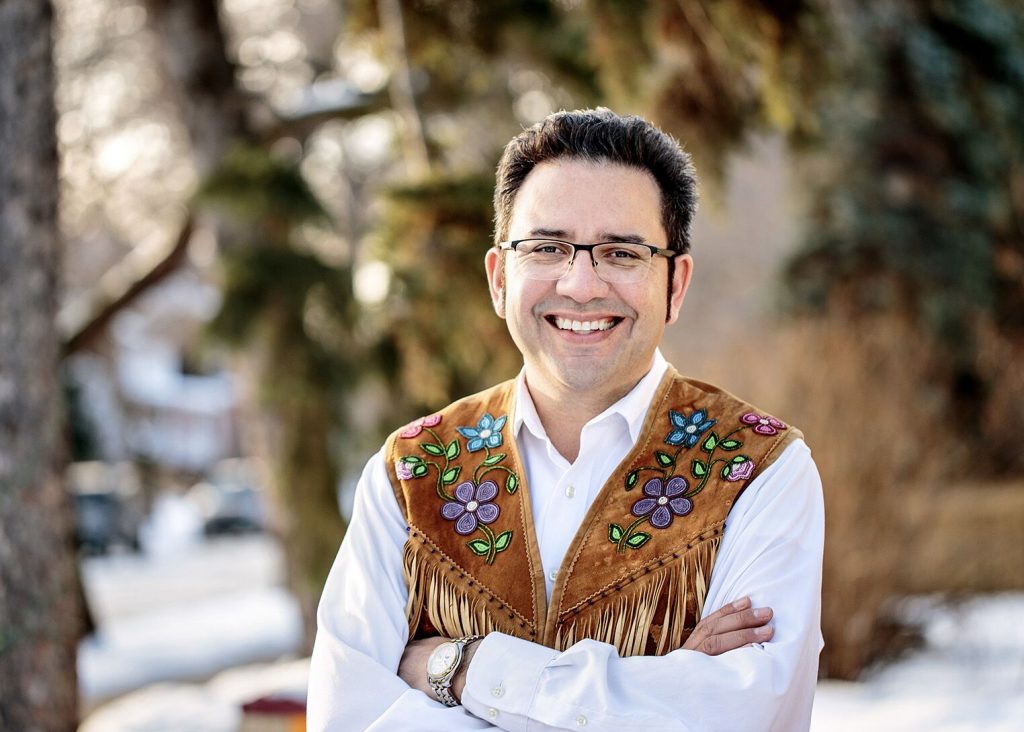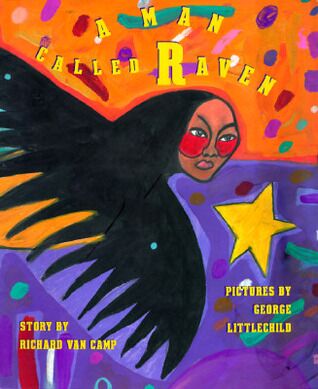Can Write: Meeting Canadian Writers and Illustrators of Children’s Books
What inspires the writers of the books your students read? How does an illustrator decide what to draw? Is it true that most authors and illustrators don’t know each other? This column features a different Canadian children’s book creator in each issue and shows you the story beyond the covers.
“With Publishing and Literature You Want to Earn Every Word”
An interview with Richard van Camp
 Richard van Camp’s beautiful books are everywhere. Each time I see Welcome Song For Baby and We Sang You Home I think that the author must be an interesting person. So I asked him some questions.
Richard van Camp’s beautiful books are everywhere. Each time I see Welcome Song For Baby and We Sang You Home I think that the author must be an interesting person. So I asked him some questions.
Margriet: You grew up in Fort Smith, NWT. How did living in a northern community influence your later writing and storytelling? Were books or storytelling important to you as a child?
Richard: When I look back, both reading and listening to stories were just as important as the other in waking me up as a Tlicho Dene, as a Fort Smither and as a child of the 80s. I loved comics growing up: The Warlord by Mark Grell, Micronauts and Heavy Metal Magazine, Epic, The Savage Sword of Conan—I could go on and on. At the same time, I was just so enchanted by the spirit stories I heard at the supper table or when we went to Pine Lake for Junior Naturalists.
Margriet: Tell us about your research process. How long does an average book take you to write?
Richard: After I graduated from high school, I ended up going to Yellowknife to study Land Claims at Arctic College. After that I went to study writing at the En’owkin Centre in Pentiction, BC. From there it was the University of Victoria and then UBC for my Master’s. So my life changed gradually after leaving Fort Smith. Each institute gave me so much. Arctic College, or Aurora College as it is called now, gave me a history of the north that I had not learned before. En’owkin is where I found my voice as a storyteller and author. UBC and UVIC helped me to hone my skills as a writer and an editor.
Margriet: So how did you become a writer?
Richard: As a lifelong reader, I just realized one day that no one was sharing how romantic and funny we are. So I sat down and said, “I’d like to write something that I would like to read and I’m not going to hold back. I’m going to tell the truth: my truth.” And that was how I started writing The Lesser Blessed, a coming-of-age novel about a Native teenager. It took me five years, and I’m so glad I’m a slowpoke because with publishing and literature you want to earn every word.
Margriet: Does writing for children help you to process the knowledge and wisdom you gained from Elders?
Richard: Oh yes. I always say I write from a place of heartbreak with my fiction and save my hope for humanity with my baby books and books for children. Elders see a bigger picture. And I agree: at 47 and as a father and husband, I realize that behind every headline is a family, a community, a future changed forever. Now that I’m a father, I see even more just how magical and precious life truly is.
Margriet: Where do your stories come from?
 Richard: The story is always the boss. Sometimes I can overhear a conversation and I’ll just start running with it. Other times, a publisher will call and say, “We want you to write about mental health and your readership is grade 8 and up and here’s your word count and deadline.” That’s how I wrote Whistle with Pearson Canada. I am always interested in redemption and I think this is a great novella about exactly that. A Man Called Raven was a phone call from Harriet Rhomer, publisher of Children’s Book Press in San Francisco. She called to say CBP wanted stories from Indigenous writers from Canada. I knew this was my chance to honour my mom, who had told us a story when we were growing up about a man who liked to hurt animals and, one day, he turned into one. I modernized it and my hero, George Littlechild, elevated it to magnificence with his art.
Richard: The story is always the boss. Sometimes I can overhear a conversation and I’ll just start running with it. Other times, a publisher will call and say, “We want you to write about mental health and your readership is grade 8 and up and here’s your word count and deadline.” That’s how I wrote Whistle with Pearson Canada. I am always interested in redemption and I think this is a great novella about exactly that. A Man Called Raven was a phone call from Harriet Rhomer, publisher of Children’s Book Press in San Francisco. She called to say CBP wanted stories from Indigenous writers from Canada. I knew this was my chance to honour my mom, who had told us a story when we were growing up about a man who liked to hurt animals and, one day, he turned into one. I modernized it and my hero, George Littlechild, elevated it to magnificence with his art.
Margriet: Are you ever tempted to also do the art?
Richard: I just doodle. I’ve been so blessed to work with Julie Flett, Christopher Auchter, Steve Sanderson, Krystal Mateus, Scott Henderson and so many other great artists. All of these artists are living treasures. I’m always so honoured to work with them.
Margriet: You have written novels, board books, comic books, poetry and more. Do you have a favourite genre?
Richard: I love each genre. I have 22 books out these past 22 years, with five on the way over the next three years in just about every genre. Whistle is epistolary: a novella written in novels. My short story “The Night Charles Bukowski Died” in the book Angel Wing Splash Pattern is written without punctuation. A short story is a perfect universe that spins on its own. A novel is a galaxy that can fold backward inside of you. Each has its own sweetness, its own medicines.
Margriet: Any message you’d like to share with (young) readers and writers?
Richard: Please read as many books, comics and magazines as you can that inspire you. Please watch a lot of great movies and TV shows that make you happy. Listen to as many stories as you can that speak to your spirit. Ask questions. Be nosy. Listen with your blood for stories that make that ancient soul of yours wake up. Carry a notebook around for sketches, quotes, ideas. I have about 50 of them and each one helped me to remember something precious. Honour those inspirations. They’re trying to find a home.
Margriet: Mahsi cho – thank you, Richard for sharing your story.
ABOUT THE AUTHOR
Margriet Ruurs
Margriet Ruurs is the author of 40 books for children. Her book The Elephant Keeper is up for the Silver Birch Express. She conducts author visits everywhere. margrietruurs.com
This article is from Canadian Teacher Magazine’s Spring 2019 issue.









